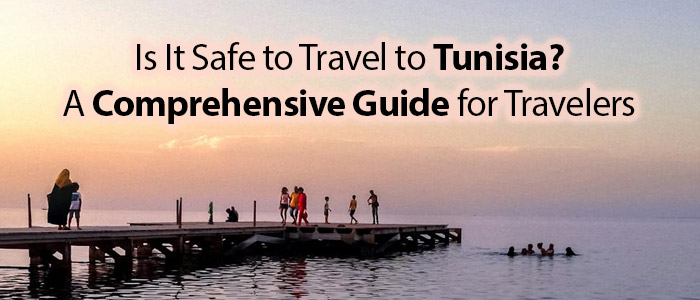Introduction
When speaking of Tunisia, it is easy to picture an overflowing tourism market because of its geographical features, fascinating history, and ancient monuments. It is one of the most civilized, historically African countries. But security is a common worry for the number of people willing to visit this North African destination.
Any visitor who wants to engage in cultural activities such as visiting ancient Carthage, shopping in the many shops in Tunis, or basking on the beach in Djerba should be careful about the situation on the ground. This particular blog assesses the status of safety in Tunisia to include but is not limited to heinous crimes, incidents targeting tourists, health issues, and political climate and aims to answer the question: is it safe to travel to Tunisia ?
Current Political Climate
Tunisia is a stable country with substantial political changes that have taken place since the beginning of the Arab Spring in 2011. Tunisia now functions as a full-fledged democracy, with active political competition, regular turnover of governments, and civil society expansion. There has been improvement in the Tunisia political climate and many of the violent disturbances have been put under control. However, sometimes limited activities do occur in these places.
Road Safety
Road safety in Tunisia is very important to consider. Roads are very difficult to locate because there are no traffic rules and road signs are not easily found, most especially in rural areas. Public means Buses and trains are all available, but most tourists would hire a car so as to enjoy more freedom.
Health and Safety
Health care in the country of Tunisia is quite very good compared to its neighboring countries. In cities such as Tunis and Sfax, the healthcare system is relatively okay. However, health facilities and quality services are mostly scarce in the rural parts of the country. Tap water is reasonably safe to drink in the cities. However, in more remote localities, bottled water is recommended.
There are health safety protocols concerning COVID-19; vaccination becomes more rampant, and the levels of this virus are brought down. Please note that entry requirements and health measures may change.
Cultural Sensitivity and Respect for Local Customs
It remains predominantly Muslim with conservative social norms outside the major cities, although tourist areas tend to be rather more liberal. Visitors should be sensitive to the ways of the local people, especially during the holy month of Ramadan.
Natural Disaster and Weather-Related Concerns
Tunisia is also Mediterranean in climate, but summers are warm while winter days are relatively cold. That is the only way the country can be considered a friendly destination throughout the year. Natural catastrophes hardly afflict the country except during autumn and winter when rainy seasons cause a flash flood here and there.
Final Words
Therefore, Tunisia is safe for tourists. Here, you can enjoy rich culture, a lot of historical sites, and beautiful beaches. Of course, some risks always lie in international travel as such, but knowledge will save you from most danger and guarantee a safe and entertaining trip. Visit this wonderful country with your wits at the ready, being attentive to national peculiarities and following the travel advisory, and your journey will be safe.
Good trip ahead!

